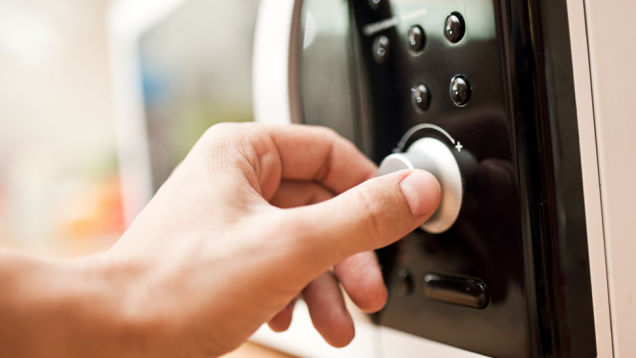[FACT OR FAKE #79] Does Microwaving Food Really Remove Its Nutritional Value?
Have you ever been told that microwaving zaps food off its nutritional value? In this week's FACT OR FAKE column, we take a closer look at this claim and determine what really happens when you microwave your food.
When it comes to microwaving food, there's a popular conception that it zaps all the nutrients in our foods. So much so that even Jennifer Lawrence's character in American Hustle dismisses the entire technology, claiming that it zaps the nutrition out of food
There's even an article - published on ABC News - claiming that cooking by microwave is the worst way to preserve a key nutrient in vegetables. The article publish in 2003 cites a Spanish study.
So is this really true? Does microwaving actually zaps nutrients out of our food? How much of it is FACT OR FAKE?
FAKE: THE ANSWER IS A RESOUNDING NO!
All cooking degrades the amount of nutrients in our food, but there are several factors to consider, including the amount of heat being applied, the amount of water used, cooking time, and the nutrients involved (e.g. folic acid and vitamins B and C, which are found in vegetables, are the most heat-sensitive water soluble vitamins).
 io9.com
io9.com
But if you're concerned about getting the most nutrition out of your eats, microwaving is a safe bet. In fact, it's near the top of the list for nutritionally sound food-preparation methods. If you use your microwave with a small amount of water to essentially steam food from the inside, you'll retain more vitamins and minerals than with almost any other cooking method.
cnn.comIn fact, if done right, microwaving our food is actually one of the best ways to retain its vitamins and minerals. (Yes, even more than conventional cooking!)
"Whenever you cook food, you'll have some loss of nutrients," says registered dietician and certified food scientist Catherine Adams Hutt. "The best cooking method for retaining nutrients is one that cooks quickly, exposes food to heat for the smallest amount of time and uses only a minimal amount of liquid." Guess what? Microwave cooking does that.
cnn.comOf course, you can mess microwaving up. Dump your veggies in a bunch of water and overcook them, and you'll leach out plenty of nutrition. "When you cook food in a microwave, cover it tightly, creating an efficient steam environment," advises Hutt.
cnn.comBut in most cases, using your microwave to cook food, if it's covered tightly in a microwave-safe container with a minimal amount of liquid, is a nutritional win. In fact, it can even enhance the nutrition of some foods. It makes the carotenoids in tomatoes and carrots more available to our bodies, for example. It makes the biotin in eggs digestible. And heat kills bacteria in food that can make us sick.
cnn.comThe trick to microwaving efficiently?
Make sure to use microwave-safe plastic wraps to seal your containers once you place them inside the device. Also, be sure not to douse your microwavable food of choice with too much water as to completely wash away the nutritional value.
cafemom.comMicrowaves, because they tend to involve shorter cooking times and less heat, tend to exert less destructive effects. Unless you nuke the absolute hell out of your foods, particularly those rich in vitamin B12. Heat forces this vitamin to convert into an inactive form.
 io9.com
io9.com
So if you microwave your foods above the boiling point, you're facilitating the process beyond conventional cooking. But this effect tends to get offset by shorter cooking times. And because less water tends to be used when microwaving vegetables, nutrients don't leach out as much.
 io9.com
io9.com




